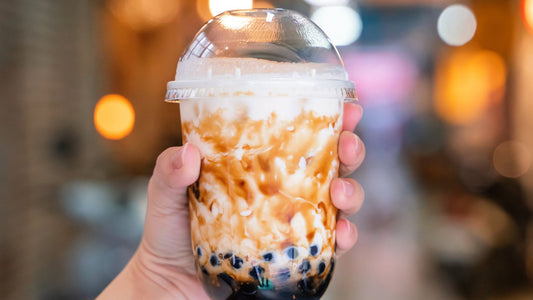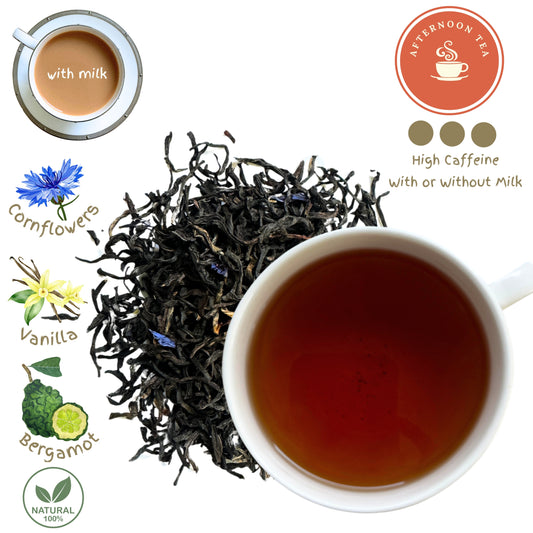Invented during the 1980s, bubble tea—also known as boba tea or pearl milk tea—has become one of Taiwan's most beloved exports, captivating global audiences with its unique combination of flavors and textures. The drink blends tea, milk, and chewy tapioca pearls and has a vibrant history tied to Taiwan's culture and economy.
From Tea Shakers to Bubble Tea
The origins of bubble tea can be traced back to the 1940s. During this period, Chang Fan Shu, who worked as a mixologist in Taiwan, introduced a new way to make tea. Using cocktail shakers, he developed a hand-shaken iced tea with a frothy texture, later dubbed foam tea. His innovation marked a shift in Taiwan's food culture, which had only just begun embracing cold beverages after World War II.
By the 1980s, Taiwan's economy flourished, leading to a surge in tea shops across the island. People were eager to explore leisure foods, and tea beverages gained popularity in both urban and suburban areas. This was the perfect setting for the creation of bubble tea.
The Birth of Bubble Tea: Competing Origins
In 1986, Taiwanese entrepreneur Tu Tsong He experimented with adding tapioca balls, known as fenyuan, to his tea at the Hanlin Tea Room. The white fenyuan, when brewed in green tea, reminded Tu of a pearl necklace, prompting him to name the drink pearl tea. Later, Tu introduced larger, black tapioca pearls to milk tea, giving birth to the classic version of bubble milk tea we know today. However, the size of these tapioca balls required custom-made straws, as regular straws were too narrow.
At nearly the same time, Lin Hsiu Hui, a manager at Chun Shui Tang, claimed to have invented bubble milk tea during a 1988 staff meeting. She added tapioca balls to Assam tea for fun, and the drink quickly became a bestseller at their tea shop.
The debate over the true inventor of bubble tea led to a 10-year legal battle that ended in 2019, with the court ruling that no one had exclusive ownership of the drink.
The Origin of the Term "Boba"
The term "boba"—now synonymous with bubble tea—was coined in Taiwan to describe the larger, black tapioca pearls used in the drink. The nickname originated from a local hawker, who drew inspiration from Hong Kong actress Amy Yip, affectionately known as "Boba," a reference to her voluptuous figure.
Bubble Tea's Impact on Taiwanese Culture
Bubble tea has become more than just a drink; it reflects Taiwan's cultural evolution from traditional practices to modern tastes. Food historian Tseng Pin Tsang notes that bubble tea's success lies in its ability to reinvent traditional elements—like tea and tapioca—into a modern, enjoyable experience that resonates with Taiwanese identity.
A Political Controversy
In 2004, Taiwan's Defense Ministry controversially suggested that citizens could fund a military defence purchase by skipping one glass of bubble tea per week for 15 years. The proposal, known as the "bubble tea for arms" campaign, sparked public outrage and highlighted just how integral bubble tea had become to Taiwanese life.
Bubble Tea's Global Expansion and Innovation
Today, bubble tea continues to evolve. Taiwanese brands like Tiger Sugar have introduced new variations, including tea-less drinks made from brown sugar and milk. Meanwhile, international chains such as Bubbleology—founded by Assad Khan in the UK—have embraced the drink's customizable nature. Whether adding cookies, fruit, or other ingredients, bubble tea remains highly adaptable, appealing to diverse tastes worldwide.
Despite the evolving recipes, high-quality tea remains at the heart of the beverage. Tu Tsong He, who passed away in 2022, emphasized the importance of using the finest tea leaves from Taiwan. As he once said, "Bubble tea isn't only the root and pride of Hanlin; it is also a highlight of Taiwan's beverage industry, introducing the world to Taiwan."
Bubble tea's journey from a local invention to a global phenomenon speaks to its cultural significance and versatility. As it continues to inspire new variations, this drink remains a cherished symbol of Taiwan's identity and innovation.










